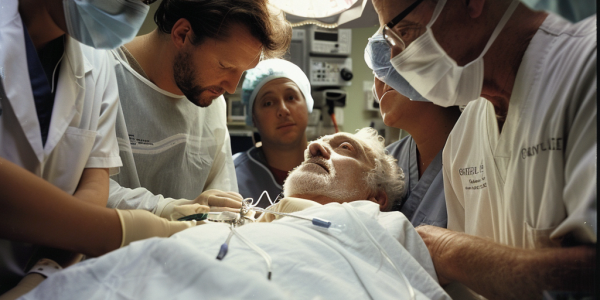Advancements in Host-Directed Therapies for Tuberculosis
Discover how Associate Professor Susanna Brighenti is leading groundbreaking research in developing host-directed therapies to combat tuberculosis (TB), a global health threat that continues to claim millions of lives. Learn about the potential of immune-enhancing treatments to revolutionize TB management and fight drug-resistant strains.
Warning Issued for Travellers to Samoa Amid Dengue Fever Outbreak
Travellers planning to visit Samoa are being advised to ensure they have comprehensive medical and travel insurance, including provisions for medical evacuation by air, due to the ongoing dengue fever outbreak in the region. Dengue fever, a viral infection transmitted by mosquitoes, can lead to symptoms such as high fever, nausea, headaches, body aches, and rashes, with severe cases potentially resulting in death. Samoan authorities have intensified fumigation efforts to combat the spread of the disease, with most reported cases among children aged 10 years and older individuals above 60 years.
Revolutionary Gene Therapy Delivery Method Developed by UW–Madison Researchers
Discover the groundbreaking method developed by researchers at the University of Wisconsin–Madison to enhance the delivery of gene therapies through short electric pulses, increasing uptake by over 40 times. This innovative approach could lead to safer and more accessible treatments for genetic diseases like cystic fibrosis and diabetes.
Seattle Man Develops Rare Brain Condition After Inhaling Fentanyl
A recent case in Seattle has highlighted the dangers of inhaling fentanyl, as a 47-year-old man was found collapsed in his hotel room after inhaling the drug, leading to a rare condition known as toxic leukoencephalopathy. This incident marks the first time this condition has been linked to illicit fentanyl, with previous cases typically associated with heroin inhalation. Learn more about the symptoms and risks associated with toxic leukoencephalopathy.
UK Faces Kidney Disease Crisis as Dialysis Rates Surge
The UK is facing a kidney disease crisis with rising numbers of patients requiring dialysis. Early detection is crucial to improving outcomes, as diabetes and high blood pressure are major contributors to kidney damage. Healthcare providers must prioritize early detection and raise awareness to manage the growing burden of chronic kidney conditions.
Antipsychotic Use in Dementia Linked to Adverse Outcomes, Study Finds
A recent study published in The BMJ reveals the increased risks faced by adults with dementia who use antipsychotic medications. The research conducted by Dr. Pearl LH Mok and colleagues found that antipsychotic use in this population was linked to a higher risk of serious conditions such as stroke, heart failure, and pneumonia. Healthcare providers and caregivers are urged to carefully weigh the potential risks and benefits of antipsychotic medications in individuals with dementia.
Recognizing Early Symptoms of Ovarian Cancer Can Save Lives
Learn about the key symptoms of ovarian cancer and why early detection is crucial for successful treatment. Bloating, feeling full quickly, and abdominal pain are just a few red flags to watch out for. Stay informed and seek medical attention promptly to improve survival rates.
Study Finds Donepezil Does Not Increase Risk of Death or Heart Abnormalities
A recent study by McMaster University reveals that the dementia medication donepezil does not increase the risk of death or specific heart rhythm abnormalities, contrary to previous warnings. The findings, published in the Journal of the American Geriatrics Society, are based on a systematic review and meta-analysis of 60 trials involving over 12,000 individuals. This research provides valuable insights into the safety of donepezil, offering reassurance to patients and healthcare providers.
Groundbreaking Pig Kidney Transplant Marks Milestone in Medicine
Read about the groundbreaking medical procedure at Massachusetts General Hospital where a genetically modified pig kidney was successfully transplanted into a 62-year-old man suffering from end-stage kidney disease. This innovative operation marks a significant advancement in the field of medicine, with potential implications for the future of organ transplantation.
Persistent Disparities in Breast Cancer Survival Rates at the Neighborhood Level Revealed in Recent Study
Recent research in JAMA Network Open reveals persistent disparities in breast cancer survival rates at the neighborhood level, despite advancements in screening and treatment. Neighborhood disadvantage impacts access to essential services, leading to shorter survival rates. Targeted interventions are needed to address these disparities and improve outcomes.










